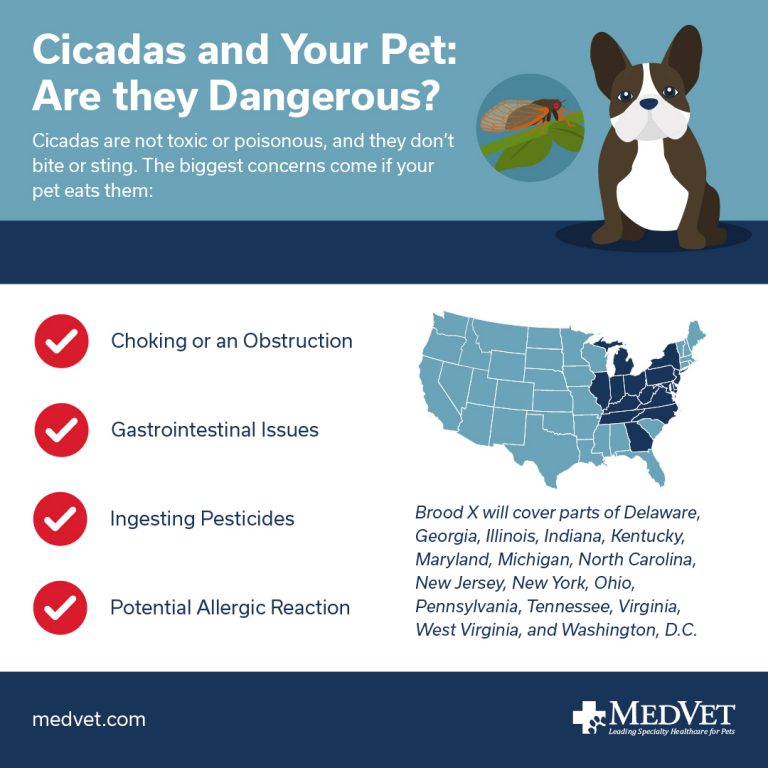
People living in many parts of the United States are bracing themselves: Brood X is coming. These periodical cicadas appear every 17 years. Billions of them will cover parts of Delaware, Georgia, Illinois, Indiana, Kentucky, Maryland, Michigan, North Carolina, New Jersey, New York, Ohio, Pennsylvania, Tennessee, Virginia, West Virginia, and Washington, D.C.
They’ll burrow out of the ground sometime in the spring and buzz around us for about six weeks. What does this mean for our pets? While dogs and cats may be drawn to these noisy, slow moving insects and decide to investigate, the good news is that cicadas are not poisonous or toxic. They do not bite or sting. And, they do not carry parasites or spread disease like many other insects.
However, if your pet decides to eat a cicada, or several of them, there is a chance their health could be affected.
- The exoskeleton and wings are difficult to digest. This can cause gastrointestinal issues like abdominal pain, upset stomach, diarrhea, and vomiting. Signs can range from mild to severe.
- The stiff wings and hard exoskeleton can be a choking hazard or cause an obstruction in your pet’s gastrointestinal tract.
- If your pet eats a large number of cicadas that were sprayed with pesticides, your pet could end up ingesting a harmful amount of the pesticides.
- While unlikely, there’s also the potential for an allergic reaction.

Teach your pet the command to “leave it” to help avoid a trip to the ER. Or make sure they’re not left unattended if you think your pet cannot control their urge to feast on full-bodied cicadas or the empty exoskeletons.
If your pet is showing signs of gastrointestinal distress, contact your family veterinarian. If your pet is having difficulty breathing or is experiencing excessive vomiting or diarrhea, and your family veterinarian is unavailable, bring them to your nearest MedVet.

